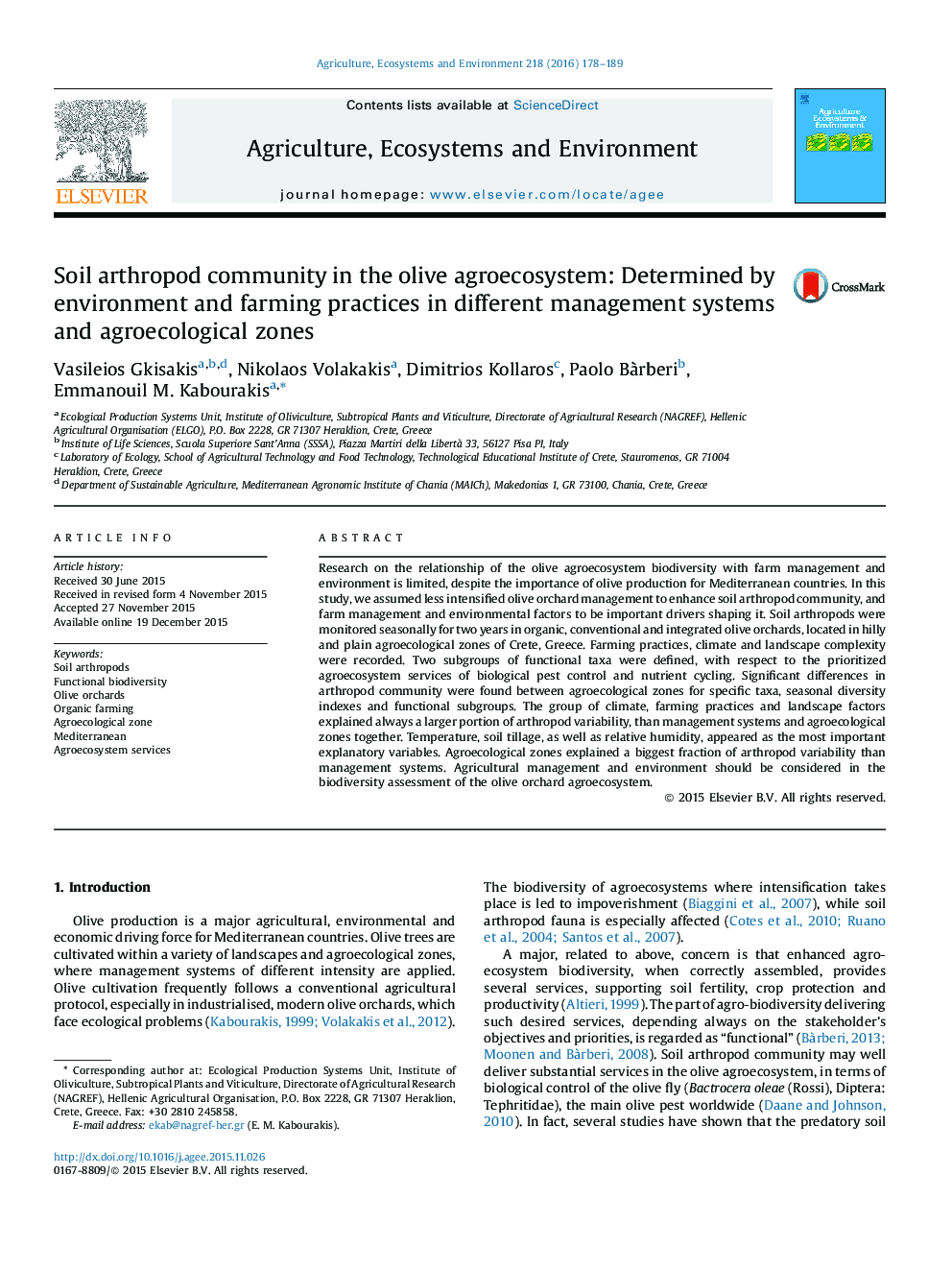| Article ID | Journal | Published Year | Pages | File Type |
|---|---|---|---|---|
| 8487561 | Agriculture, Ecosystems & Environment | 2016 | 12 Pages |
Abstract
Research on the relationship of the olive agroecosystem biodiversity with farm management and environment is limited, despite the importance of olive production for Mediterranean countries. In this study, we assumed less intensified olive orchard management to enhance soil arthropod community, and farm management and environmental factors to be important drivers shaping it. Soil arthropods were monitored seasonally for two years in organic, conventional and integrated olive orchards, located in hilly and plain agroecological zones of Crete, Greece. Farming practices, climate and landscape complexity were recorded. Two subgroups of functional taxa were defined, with respect to the prioritized agroecosystem services of biological pest control and nutrient cycling. Significant differences in arthropod community were found between agroecological zones for specific taxa, seasonal diversity indexes and functional subgroups. The group of climate, farming practices and landscape factors explained always a larger portion of arthropod variability, than management systems and agroecological zones together. Temperature, soil tillage, as well as relative humidity, appeared as the most important explanatory variables. Agroecological zones explained a biggest fraction of arthropod variability than management systems. Agricultural management and environment should be considered in the biodiversity assessment of the olive orchard agroecosystem.
Related Topics
Life Sciences
Agricultural and Biological Sciences
Agronomy and Crop Science
Authors
Vasileios Gkisakis, Nikolaos Volakakis, Dimitrios Kollaros, Paolo BÃ rberi, Emmanouil M. Kabourakis,
